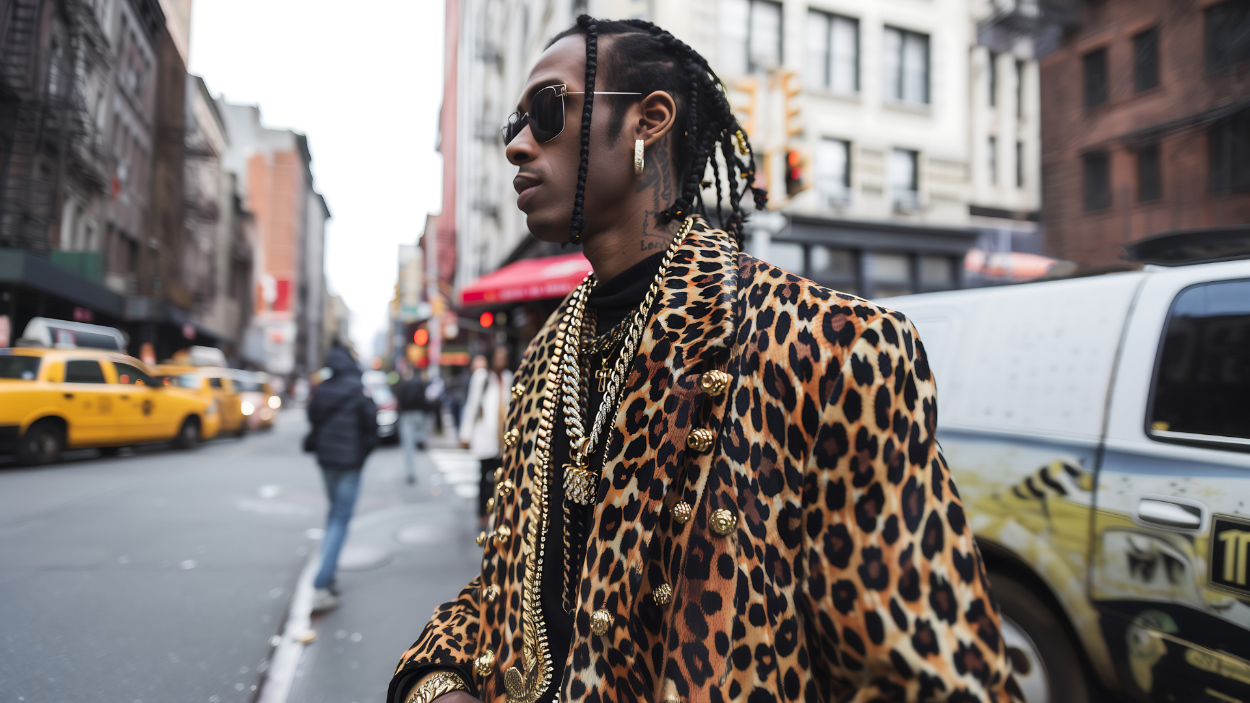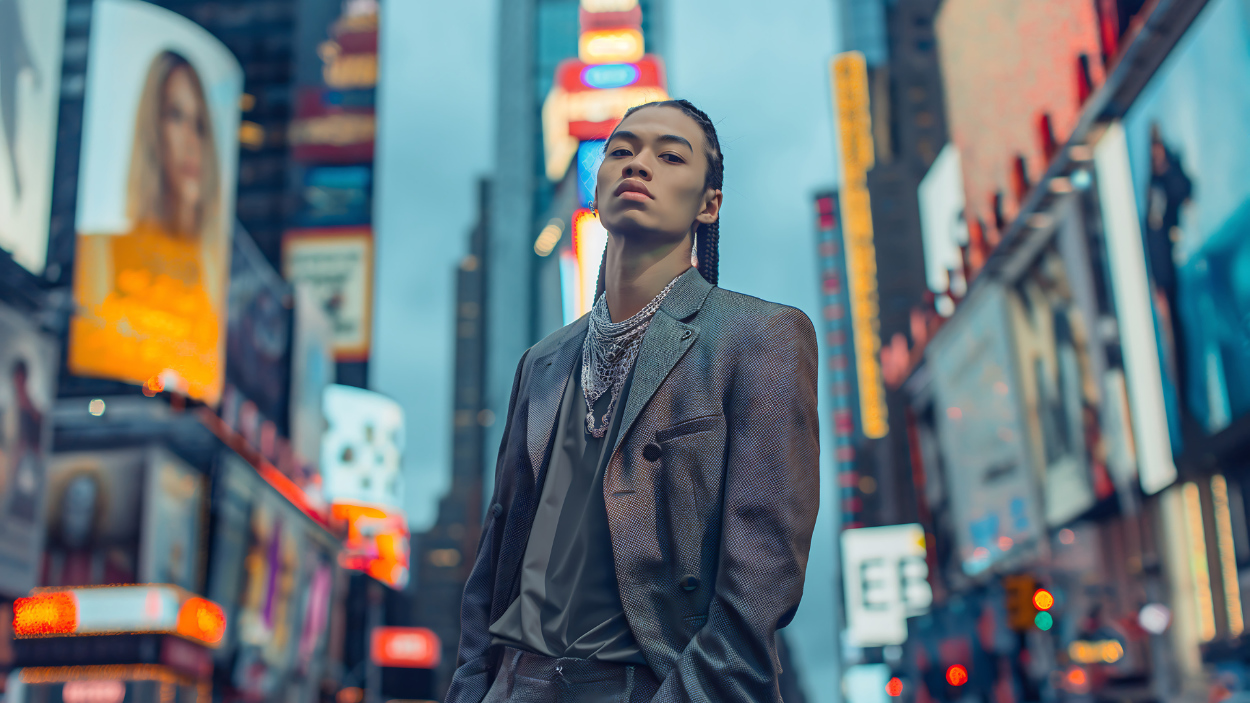
Key Takeaways:
- The EU Court of Justice has upheld a decision to fine Google €2.4 billion for giving preferential treatment in its search results to its own price-comparison shopping service over rival offerings. The message is now unmistakable for digital gatekeepers, particularly in e-commerce: they can no longer operate without oversight, or corner markets through manipulation.
- Advocacy group the Model Alliance submitted hundreds of letters to NY Governor Kathy Hochul, urging her to endorse the New York Fashion Workers Act, which aims to regulate management agencies and protect models and other industry professionals.
- The Act also now includes important additions around AI that require talent managers and brand clients to get permission from models before using their likeness in AI-generated digital replicas, although lobbying against the wholesale replacement of models with AI alternatives is not in-scope. Elsewhere, Nike shareholders vote against a proposal on workers’ rights.

Google slapped with EU antitrust fine over shopping comparison practices
This week, Google lost its seven-year battle with the European Commission, when the EU’s Court of Justice upheld its ruling that a €2.4 billion fine should be imposed on the company for anti-competitive promotion of its Google Shopping service. The Commission’s case against Google focused on the company prioritising its own product comparison tool in search results, featuring it with appealing visual and textual elements, while competitors’ results were placed lower and only displayed as links.
As with a lot of antitrust cases, the key to this outcome was the impact of a monopoly (or something functionally equivalent to one) on a market. As we continue to cover both antitrust and AI into 2025, we advise readers to keep that pivot point in mind.

For this specific case, Google lost its first appeal with a lower court in 2021, which they followed up by taking the matter to the EU’s Court of Justice. The company argued that it was being punished for acquiring a dominant position in the market through fair means.
But the Court of Justice’s judges have now upheld the lower court’s decision that the company (indeed, any company) is allowed to achieve a dominant position – but not to abuse it. “Google’s strategy for its comparison shopping service wasn’t just about attracting customers by making its product better than those of its rivals,” EU commissioner Margrethe Vestager said previously. “Instead, Google abused its market dominance as a search engine by promoting its own comparison shopping service in its search results, and demoting those of competitors.”

Again, the rules of an established market were being progressively squeezed and reformed, and this was the basis of the conclusion.
To white, judges this week ruled that: “In the light of the characteristics of the market and the specific circumstances of the case, Google’s conduct was discriminatory and did not fall within the scope of competition on the merits” and dismissed the appeal by Google and its parent company Alphabet.
The case is another milestone in the history of regulatory action against major technology companies – primarily the ones that have earned the European Commission designation of six “gatekeepers” – Alphabet, Amazon, Apple, ByteDance, Meta, Microsoft – under the Digital Markets Act (DMA) last year.

And although we’re focusing on eCommerce today, Google’s wider legal battles are happening at such a rapid pace that it’s hard to keep up with them all. They are currently also embroiled in a legal dispute with the EU that may compel the company to sell parts of its adtech business due to accusations that it prioritises its own services over competitors.
The EU Commission’s preliminary findings suggest that, as Google is unlikely to alter its practices, “mandatory divestment” of certain services is the only way to resolve the competition issues. And most recently, in the US, Google is battling the Department of Justice for allegedly illegally monopolising the online search and advertising markets, which also has particular relevance in product discovery and shopping.
While Google is currently in the crosshairs, there is a strong message being sent: others involved in e-commerce engaging in similar practices, beware.

New York Fashion Workers Act in the spotlight during NYFW
NYFW is in full swing this week. In a shrewd, and important, move, advocacy group Model Alliance has seized the heightened attention to deliver hundreds of letters to New York Governor Kathy Hochul’s office – urging her to sign the New York State Fashion Workers Act, which aims to regulate management agencies and safeguard models and other industry professionals from exploitation.This is the latest update since June, when the Act passed the state assembly after passing the senate.
Sara Ziff, Founder and Executive Director of Model Alliance has called the Act “a necessary and urgent step” saying that it is unacceptable that a core part of the creative workforce behind the global fashion industry – worth around $1.7 trillion today – still lacks basic protections. The revenue of the apparel market in the United States alone adds up to around $358.70 billion, and of that it’s estimated that New York Fashion Week alone generates something close to $600 million in income each year. This income generates nearly $2 billion in tax revenue for the state.

However, times are changing. A new report At a Crossroads: New York City’s Status as a Global Fashion Capital, paints a picture of the state losing 50,000 jobs and 13.6% of economic output in the last decade. This may be in part because those behind the industry’s success – models, influencers, stylists, makeup artists, hair stylists, and other creative artists – all are vulnerable when it comes to harassment, abuse, wage theft, and human trafficking and may be shifting to other sectors.
How has this been allowed to happen? In their Introduction of Fashion Workers Act to Regulate Modelling Agencies, Senator Brad Hoylman and Model Alliance explain that under New York State General Business Law §171(8) – also known as the “incidental booking exception” – modelling and creative agencies are classified as management companies rather than talent agencies. This distinction exempts them from licensing and regulation requirements.

As part of their representation agreements, agencies are typically granted power of attorney which allows them to handle payments, deposit cheques, deduct expenses, and book jobs on behalf of models and other professionals. They also have the authority to negotiate rates and permit third-party use of a model’s image without the express consent of the model themselves. As a result, models and creatives often endure long delays in receiving payment (sometimes months or even years) while agencies deduct unexplained fees on top of a 20% commission – from both the model’s earnings and the client’s payment.
These agencies can also bind their clients to exclusive, multi-year contracts without guaranteeing work or timely compensation, trapping them in cycles of debt and exposing them to further exploitation.
And this is not the only worry that models have. They are also facing being assailed on the digital front in the age of AI. One of the most well-known examples is Shareen Wu, a model who participated in a runway show for American designer Michael Costello. Wu accused the designer of digitally altering a photo of her wearing one of his dresses, claiming Costello used technology to replace her face in the image with another woman’s.

But this could soon be illegal. An amendment to the Fashion Workers Act, made in January of this year, protects models from brands, agencies and other entities from unauthorised use or alteration of their digital likeness. The provisions define a “digital replica” and require that management companies and brands obtain clear, written consent to create or use a model’s digital replica, detailing the scope, purpose, rate of pay and duration of each use.
The definition mentions AI directly. In full, a digital replica means “a significant, computer-generated or artificial intelligence-enhanced representation of a model’s likeness, including but not limited to, their face, body, or voice, which substantially replicates or replaces the model’s appearance or performance, excluding routine photographic edits such as colour correction, minor retouching, or other standard post-production modifications.”
While the cultural debate around the use of AI-generated models is still simmering (no brand wants to step forwards and admit to the practice at the moment) there’s little doubt that we will see generative AI beginning to take the place of real models and photoshoots – making these additional provisions a timely improvement, even though they do little at this stage to address scenarios where brands simply choose not to work with real models at all…

On the opposite side of the ever-spinning coin between people and profits, at its annual meeting this past week, Nike shareholders rejected a proposal to explore joining binding agreements with supply chain workers to improve human rights protections in high-risk countries, Reuters reports.
The proposal was spearheaded by an investor group led by Domini Impact Equity Fund, one of over 60 investors who signed a letter last year pressing Nike to pay $2.2 million in allegedly unpaid wages owed to roughly 4,000 garment workers in Cambodia and Thailand. For the second consecutive year, a similar petition (led by investor Tulipshare) called on Nike to evaluate the effectiveness of its supply chain management, particularly regarding issues like forced labour and wage theft. Both were also voted against, echoing last year’s results where the latter proposal was rejected by nearly 80% of the investors who had voted.

Domini’s proposal also urged Nike to release a report on the potential impact of adopting worker-driven social responsibility (WSR), which establishes binding agreements with workers on safety standards and enforcement measures. The proposal similarly sought an explanation for Nike’s decision not to join the Pakistan Accord, the binding health and safety pact between workers’ unions and brands, which competitors like Adidas and Puma have already signed.
None of this, of course, means that the brand’s shareholders, executives, or staff does not value those workers – but it does remind us that, for public companies, the cost of humanitarian and climate action will often be the foremost concern.

